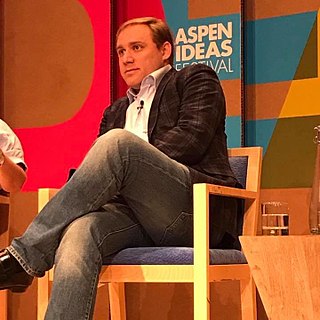
Computer security, cybersecurity or information technology security is the protection of computer systems and networks from the theft of or damage to their hardware, software, or electronic data, as well as from the disruption or misdirection of the services they provide.
Fortinet is an American multinational corporation headquartered in Sunnyvale, California. It develops and markets cybersecurity software and appliances and services, such as firewalls, anti-virus, intrusion prevention and endpoint security.
Cybersecurity standards are techniques generally set forth in published materials that attempt to protect the cyber environment of a user or organization. This environment includes users themselves, networks, devices, all software, processes, information in storage or transit, applications, services, and systems that can be connected directly or indirectly to networks.
A cybersecurity regulation comprises directives that safeguard information technology and computer systems with the purpose of forcing companies and organizations to protect their systems and information from cyberattacks like viruses, worms, Trojan horses, phishing, denial of service (DOS) attacks, unauthorized access and control system attacks. There are numerous measures available to prevent cyberattacks.

Internet police is a generic term for police and government agencies, departments and other organizations in charge of policing Internet in a number of countries. The major purposes of Internet police, depending on the state, are fighting cybercrime, as well as censorship and propaganda.

Howard Anthony Schmidt was a partner with Tom Ridge in Ridge Schmidt Cyber LLC, a consultancy company in the field of cybersecurity. He was the Cyber-Security Coordinator of the Obama Administration, operating in the Executive Office of the President of the United States. He announced his retirement from that position on May 17, 2012, effective at the end of the month.

CyberArk is a publicly traded information security company offering Privileged Account Security. The company's technology is utilized primarily in the financial services, energy, retail, healthcare and government markets. As of February 12, 2020 CyberArk had over 5,300 customers, including more than 50 percent of the Fortune 500 and more than 35 percent of the Global 2000. CyberArk is headquartered in Petah Tikva, Israel, with U.S. headquarters located in Newton, Massachusetts. The company also has offices throughout the Americas, EMEA, Asia Pacific and Japan.

F. William "Bill" Conner is an American business executive.
There is no commonly agreed single definition of “cybercrime”. It refers to illegal internet-mediated activities that often take place in global electronic networks. Cybercrime is "international" or "transnational" – there are ‘no cyber-borders between countries'. International cybercrimes often challenge the effectiveness of domestic and international law and law enforcement. Because existing laws in many countries are not tailored to deal with cybercrime, criminals increasingly conduct crimes on the Internet in order to take advantages of the less severe punishments or difficulties of being traced. No matter, in developing or developed countries, governments and industries have gradually realized the colossal threats of cybercrime on economic and political security and public interests. However, complexity in types and forms of cybercrime increases the difficulty to fight back. In this sense, fighting cybercrime calls for international cooperation. Various organizations and governments have already made joint efforts in establishing global standards of legislation and law enforcement both on a regional and on an international scale. China–United States cooperation is one of the most striking progress recently, because they are the top two source countries of cybercrime.

Dmitri Alperovitch is a Russian-born American computer security industry executive. He is co-founder and former chief technology officer of CrowdStrike. In August 2011, as vice president of threat research at McAfee, he published Operation Shady RAT, a report on suspected Chinese intrusions into at least 72 organizations, including defense contractors, businesses worldwide, the United Nations and the International Olympic Committee. Alperovitch is a naturalized American citizen born in Russia who came to the United States in 1994 with his family.
Markus Jakobsson is a computer security researcher, entrepreneur and writer, whose work is focused on the issue of digital security.
The following outline is provided as an overview of and topical guide to computer security:
Vectra AI, Inc. applies artificial intelligence that detects and responds to hidden cyberattackers inside cloud, data center and enterprise networks.

Salvatore J. Stolfo is an academic and professor of computer science at Columbia University, specializing in computer security.
Darktrace is a company that specialises in cyber defense. The company was established in 2013 and is headquartered in Cambridge, UK and San Francisco, with over 40 offices worldwide.
OneSpan is a publicly traded cybersecurity technology company based in Chicago, Illinois with offices in Montreal, Brussels and Zurich. The company offers a cloud-based and open architected anti-fraud platform and is historically known for its multi-factor authentication and electronic signature software. It was founded by T. Kendall Hunt in 1991 and held its initial public offering (IPO) in January 2000. OneSpan is a member of the FIDO Alliance Board.
In cybersecurity, cyber self-defense refers to self-defense against cyberattack. While it generally emphasizes active cybersecurity measures by computer users themselves, it is sometimes used to refer to the self-defense of organizations as a whole, such as corporate entities or entire nations. Surveillance self-defense is a variant of cyber self-defense or largely overlaps with it. Active and passive cybersecurity measures provide defenders with higher levels of cybersecurity, intrusion detection, incident handling and remediation capabilities. Various sectors and organizations are legally obligated to adhere to cyber security standards.
CUJO AI is an American network intelligence software company headquartered in El Segundo, California, United States. It provides cybersecurity and device management software for network operators.
This is a list of cybersecurity information technology. Cybersecurity is security as it is applied to information technology. This includes all technology that stores, manipulates, or moves data, such as computers, data networks, and all devices connected to or included in networks, such as routers and switches. All information technology devices and facilities need to be secured against intrusion, unauthorized use, and vandalism. Additionally, the users of information technology should be protected from theft of assets, extortion, identity theft, loss of privacy and confidentiality of personal information, malicious mischief, damage to equipment, business process compromise, and the general activity of cybercriminals. The general public should be protected against acts of cyberterrorism, such as the compromise or loss of the electric power grid.
Cyber security awareness refers to how much end users know about the cyber security threats their networks face and the risks they introduce. End users are considered the weakest link and the primary vulnerability within a network. Organizations allot funding to protect their networks from outside threats and reduce vulnerabilities. Being that end users are a major vulnerability, technical means to improve security are not enough: organizations must also provide training for a personal awareness of cyber security. They should educate employees on current threats and how to avoid them.






